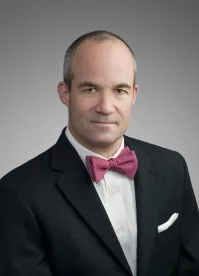On January 23, 2012 the Supreme Court released its opinion in United States v. Jones--the GPS surveillance case.
Everyone was curious: had there been a "search" under the Fourth Amendment?
Sure the fact that you are out in public is not a secret in which you have some expectation of privacy. But can the police really keep track of where your car is every moment of they day? How far can the police go?
But when the Supreme Court released the opinion, you could just hear the criminal defense bar say:
RECALCULATING.
Why? Because rather than decide grand questions, Justice Scalia looked to the text of the Constitution and decided the case in front of him by asking WWJD?
Scalia did not answer the question of how much intrusion is too much For Scalia (and the majority) the case turned on the fact that police had actually fiddled with the vehicle by attaching something to it. Scalia noted that the Constitution guarantees that the people will be "secure in their persons, houses, papers and effects, against unreasonable searches and seizures . . . ."
So "What would Jefferson do?" How would a founding father treat the attachment of a thingamajig to a vehicle. That's easy. Jefferson or Hamilton would call it a trespass, and therefore a search:
The Government physically occupied private property for the purpose of obtaining information. We have no doubt that such a physical intrusion would have been considered a “search” within the meaning of the Fourth Amendment when it was adopted. Entick v. Carrington, 95 Eng. Rep. 807 (C. P. 1765), is a “case we have described as a ‘monument of English freedom’ ‘undoubtedly familiar’ to ‘every American statesman’ at the time the Constitution was adopted, and considered to be ‘the true and ultimate expression of constitutional law’” with regard to search and seizure. . . . In that case, Lord Camden expressed in plain terms the significance of property rights in search and seizure analysis:
“[O]ur law holds the property of every man so sacred,that no man can set his foot upon his neighbour’s close without his leave; if he does he is a trespasser, though he does no damage at all; if he will tread upon his neighbour’s ground, he must justify it by law.”
I love old law. There's no denying it. Nothing warms my heart more than citations to the English Reports c. 1765 written by somebody named "Lord so-and-so." And I love spelling "neighbour."
But what if the police got all this information without "physically occupying property?"Can they chart all of my movements so long as they don't commit a trespass? How long? A week? A month? All year?
That would be an interesting case, says Justice Scalia. It's just not this case and need not be decided right now:
The concurrence faults our approach for “present[ing] particularly vexing problems” in cases that do not involve physical contact, such as those that involve the transmission of electronic signals. Post, at 9. We entirely fail to understand that point. For unlike the concurrence, which would make Katz the exclusive test, we do not make trespass the exclusive test. Situations involving merely the transmission of electronic signals without trespass would remain subject to Katz analysis.
* * *
(I]t remains unexplained why a 4-week investigation is “surely” too long and why a drug-trafficking conspiracy involving substantial amounts of cash and narcotics is not an “extra- ordinary offens[e]” which may permit longer observation. See post, at 13–14. What of a 2-day monitoring of a suspected purveyor of stolen electronics? Or of a 6-month monitoring of a suspected terrorist? We may have to grapple with these “vexing problems” in some future case where a classic trespassory search is not involved and resort must be had to Katz analysis; but there is no reason for rushing forward to resolve them here.
And so, the defense bar is "Recalculating."




 />i
/>i
